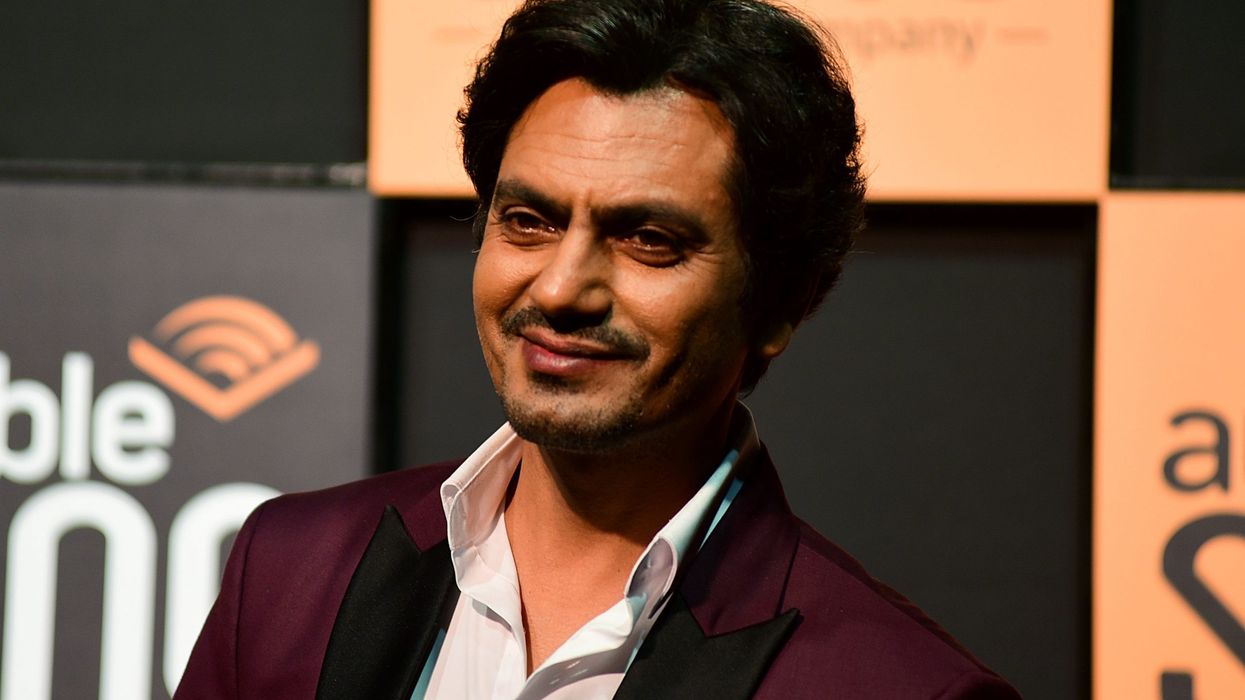AFTER a decade of struggle, Nawazuddin Siddiqui delivered break out performances in 2012 that kick-started a remarkable rise for the self-made star.
He has become one of India’s most acclaimed and in demand actors, with a series of winning performances in diverse projects that have shown off his remarkable range. His new movie Tiku Weds Sheru premiered on Amazon Prime recently. To mark the new release, Eastern Eye put together his top 10 performances, listed in chronological order.
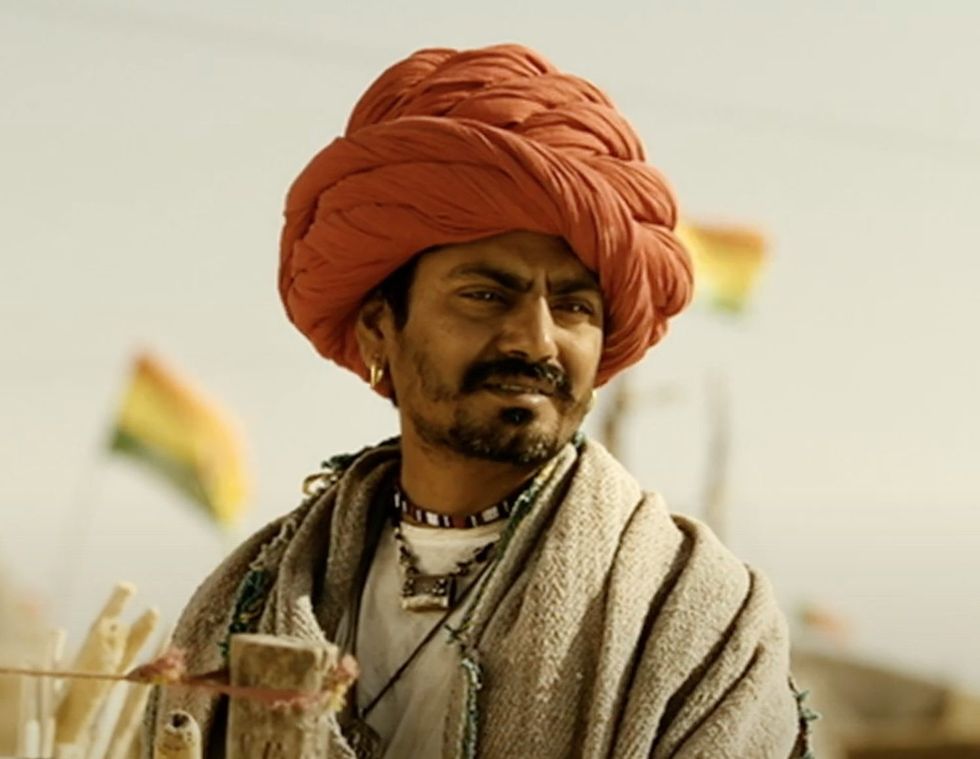
Jethu in Dekh Indian Circus (2011): The actor first got noticed for his award-winning performance in this rural drama, which delighted audiences on the international film festival circuit. The story of parents wanting the best for their children, saw him brilliantly portray the pain and angst of a mute father. He used hand gestures and facial expressions to perfection in a movie that would put him on the radar of multiple producers.
IB Officer A Khan in Kahaani (2012): This critically acclaimed smash hit thriller got Siddiqui noticed by wider cinema audiences. He portrays a special investigator, whose paths cross with a woman looking for her missing husband, who may be a rogue agent. He lights up each scene with his magnetic presence and showed quite comprehensively that he could add real depth to a commercial movie.
Gangs of Wasseypur – Part 1 & 2 (2012): The gangster drama set across two movies was another indicator that Siddiqui had star potential. He goes through an epic transition from devious to ruthless in the story set across different generations. He holds his own in movies loaded with top drawer performances and introduced Hindi cinema to a new kind of grey-shaded role.
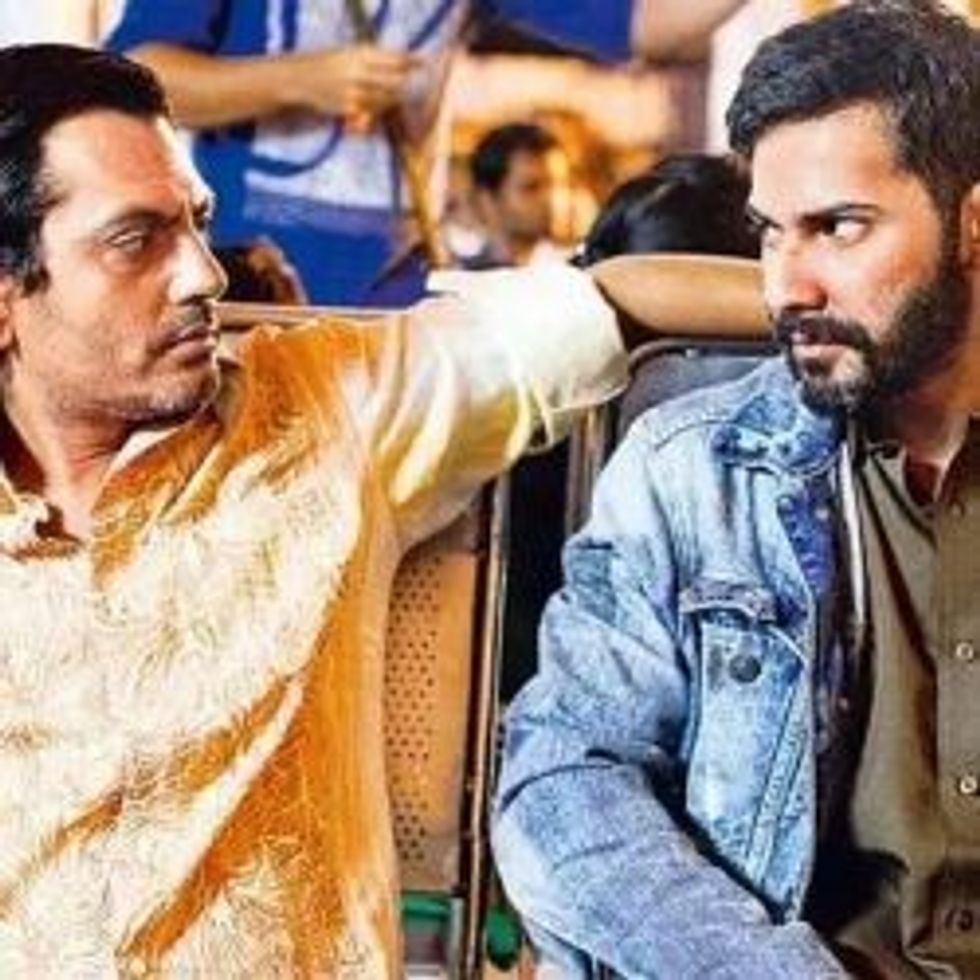
Badlapur (2015): The standard revenge drama was taken to a higher level by a villainous turn from Siddiqui. He received multiple award nominations for his powerful role, which added extra nuances to the standard Hindi film villain. The actor received acclaim right across the board for portraying a multilayered character, which combined brutality with a dangerously unpredictable demeanour.
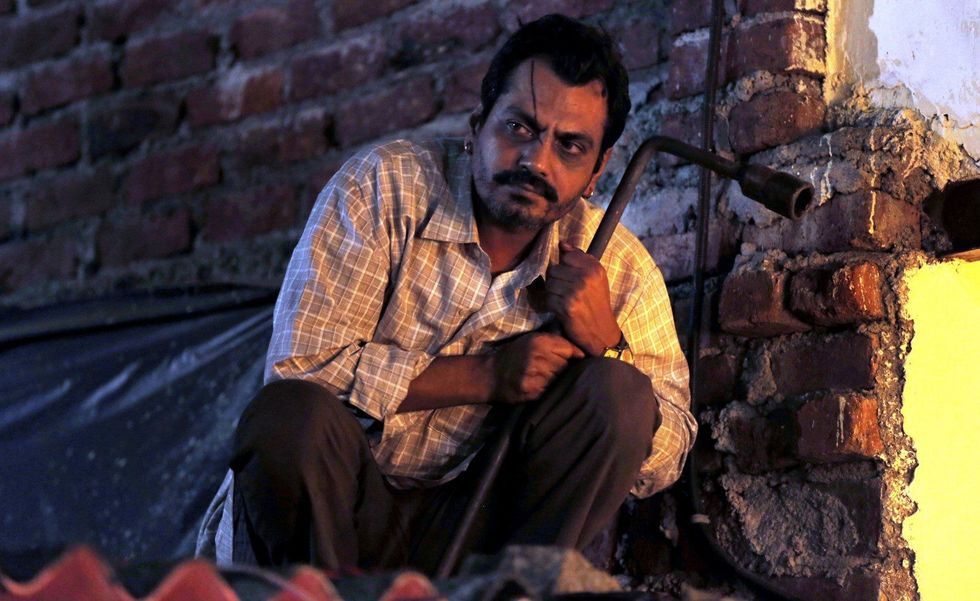
Raman Raghav 2.0 (2016): Perhaps the most chilling character of his career, saw Siddiqui play a vicious serial killer being pursued by a corrupt cop. His character based on a real-life murderer cleverly combined pure evil with a seemingly normal exterior of an everyday man, who blends in with the crowd. The impact of his transformative role was such that it generated a whole load of internet memes.
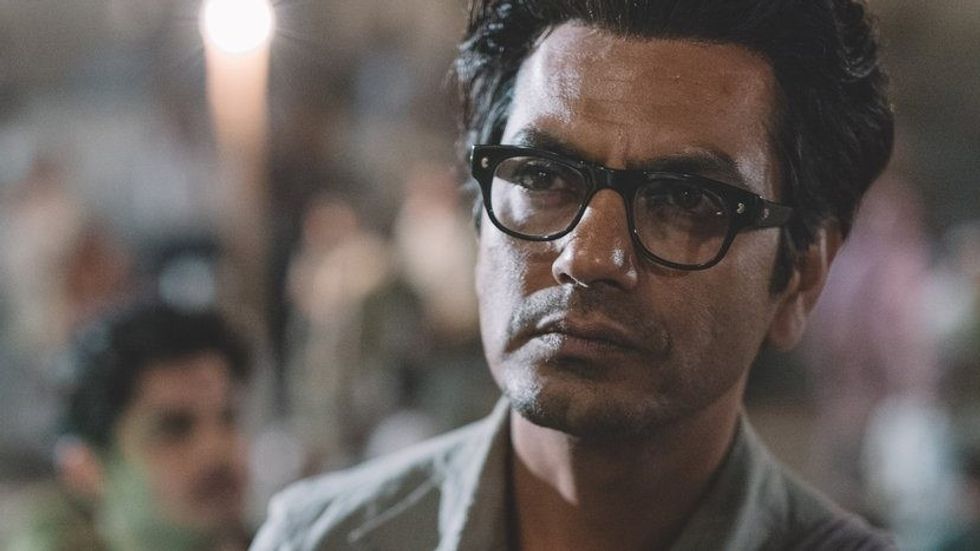
Manto (2018): The actor transformed himself to play Saadat Hasan Manto in this 1940s set drama. His performance in the critically acclaimed movie enabled him to take a deep dive into the legendary author and writer’s descent into darkness. And he does it effortlessly, showing that less can be more with great acting that captures the emotional instability of a writer during a turbulent time in India’s history.
Sacred Games (2018-2019): The actor’s power-packed performance as notorious gangster Ganesh Gaitonde added gravitas to this web series. He puts across real danger in his own subtle manner with a role that enabled him to show off different facets of a decidedly dark character, who combined evil with intelligence, in the neo-noir crime thriller adaptation of a best-selling book.
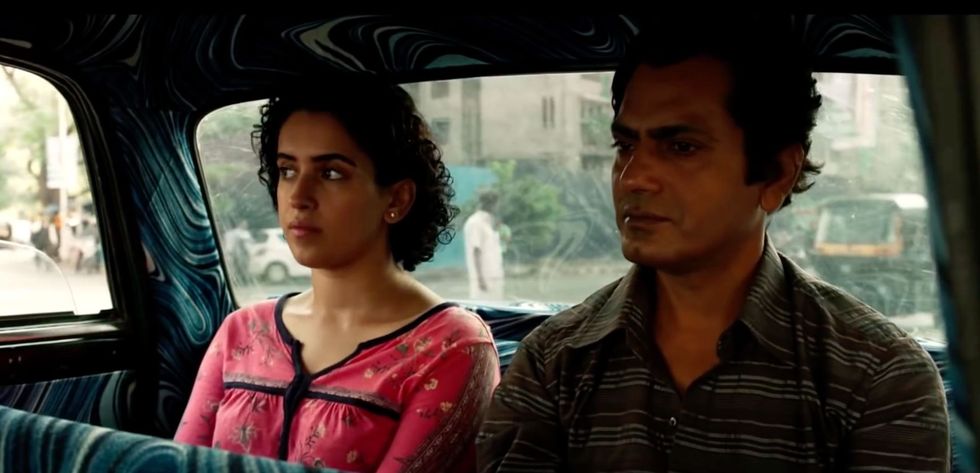
Photograph (2019): After delivering an award-winning performance in smash hit film The Lunchbox, Siddiqui teamed up with the same director Ritesh Batra for this unique role that was different from all the others he had played. He packed away the emotional intensity and grey shades to play a likeable street photographer, who finds a special bond in the most unexpected place. There was real warmth in his beautifully normal performance, which didn’t get the credit it deserved.
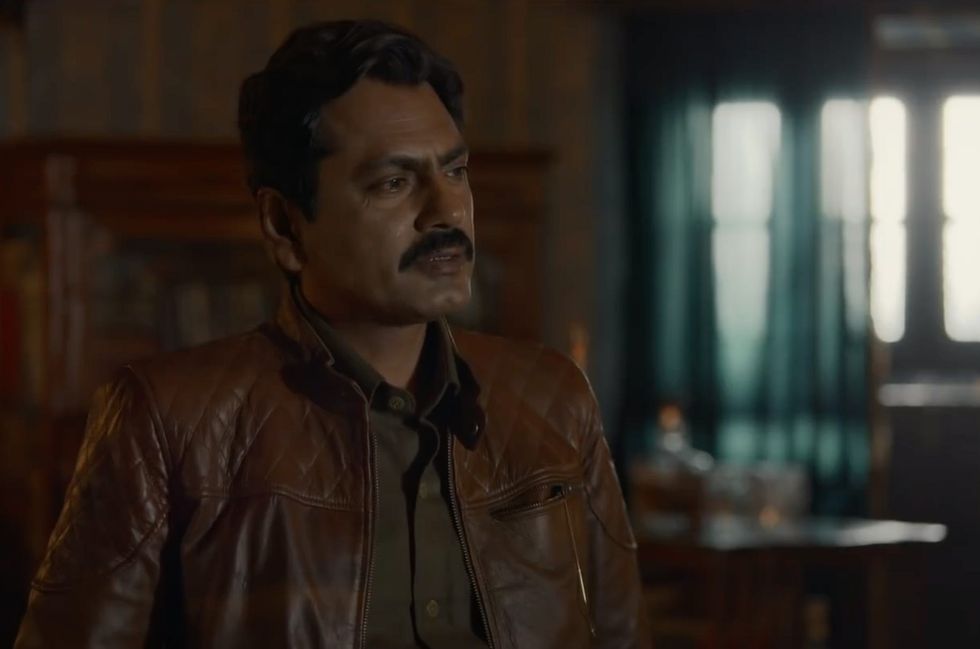
Raat Akeli Hai (2020): The actor took on the challenging role of a no-nonsense police officer, who is called upon to investigate a murder and finds himself being strangely drawn to a suspect. Another magnificently multilayered performance saw him combine a brooding intensity with unpredictable actions and emotions that bubbled away under the surface. He creates real chemistry onscreen with Radhika Apte, as he has done with co-stars throughout his career.
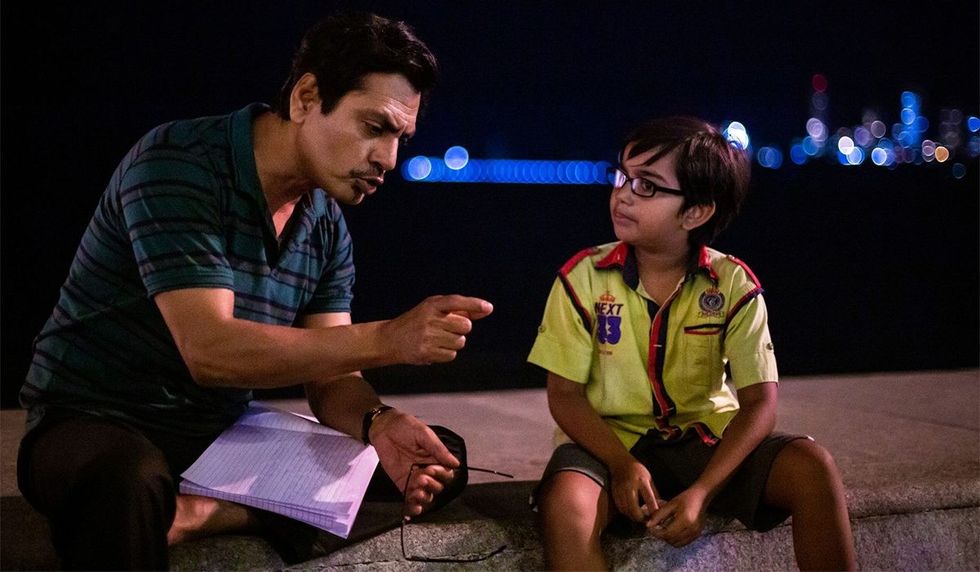
Serious Men (2020): The satirical comedydrama, based on a best-selling book, was one of that year’s finest Bollywood films. The positive reviews were largely thanks to the effortless way chameleon like actor Siddiqui slipped into a multilayered role, which enabled him to be submissive, dominant, devious, and so much more. He used his body language, expressions, and voice perfectly in a role of a man using an ingenious con to get ahead in life. He made the role relatable to anyone held down by society, wanting to push back.
